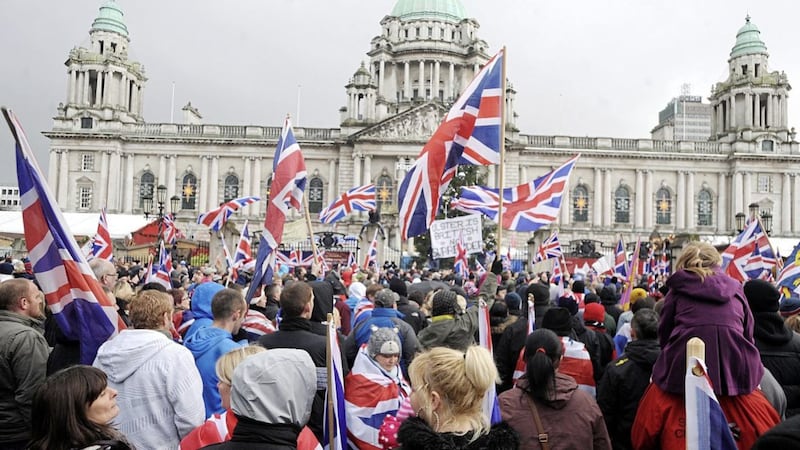A NEW political era doesn't quite do justice to the remarkable outcome of last week's election.
What a reversal of fortunes for Arlene Foster, having gone from looking like her leadership position was untenable to propping up a Conservative government.
She looked understandably delighted with herself when along with DUP deputy leader Nigel Dodds she spoke to the press at Stormont on Monday, just before travelling to Downing Street to meet her new partner in government Theresa May.
Gone was the strained look of a woman working her notice and back was the supremely confident Arlene of old.
In March as the results of the Stormont election were counted, the changing demographics of Northern Ireland were demonstrated for the first time, with a massive surge in the nationalist vote, almost of all of which went to Sinn Féin.
When the people loyalism was conditioned to treat as an enemy or at least with deep suspicion appeared to be growing in power and status it created a panic within sections of unionism.
The removal of the unionist majority at Stormont for the first time since the creation of a state designed and gerrymandered to keep unionist dominance for as long as possible, was like a political earthquake.
In calling a general election at a time when Northern Ireland was in crisis Theresa May was not thinking of what was best for us but had her own political ambitions in mind given the polls at the time showing she was flying high.
And while we now know what a spectacular error of judgment that was on Theresa May's part, it has been advantageous for an under pressure DUP in a way they could only have dreamed of.
Kingmakers at last!
If the DUP manages to negotiate a deal that mitigates austerity and brings home sacks of cash for the health service, education and infrastructure then it will silence their critics and place Sinn Féin in a very difficult position.
The reality may not be as glorious, minority governments rarely last. I suspect the DUP know this and will be trying to get as much as they can as quickly as they can.
They were gifted with this position in part by the backing of the loyalist community, a section of society who arguably gained least from the peace process.
A community who had invested a lot in their identity but failed to make much in the way of gains electorally and so trusted ' big house' unionism to represent them, only to be left behind in a fast changing Northern Ireland.
Loyalist groups, including the Orange Order and UPRG, ran registration drives in the run up to the election, convincing people that casting a vote for the DUP was the best way to save the union.
And it worked, voter turnout was up in polling stations in loyalist areas, in some places to over 70 per cent.
Previously unthinkable in areas where voting was traditionally shunned.
The flag protests were a stark reminder of what bubbles close to the surface in Northern Ireland when people feel left behind and are politically manipulated.
Loyalists felt abandoned and demonised by the press, and that is something I can relate to, as someone from a working class nationalist area the only journalists I ever met growing up had plummy accents and portrayed my community as bloodthirsty savages.
I have always felt the heavy responsibility that comes with my now privileged position.
The DUP have been trusted with a mandate from a section of society who traditionally did not vote and as such they need to deliver.
A good start would be abandoning support for academic selection which disadvantages the working classes, investing in education that will help young men reach university rather than prison and opposing Tory welfare reforms that penalise the most vulnerable.
Working class loyalists turned their back on electoral politics for many reasons, some out of apathy that the union was safe regardless, others out of anger that they had been socially and economically abandoned.
Now that the trends are changing, loyalists are once again engaging with electoral politics. The fact that young loyalists feel politics can deliver for them should be encouraged.
The DUP have been trusted to deliver, the question is will they?








